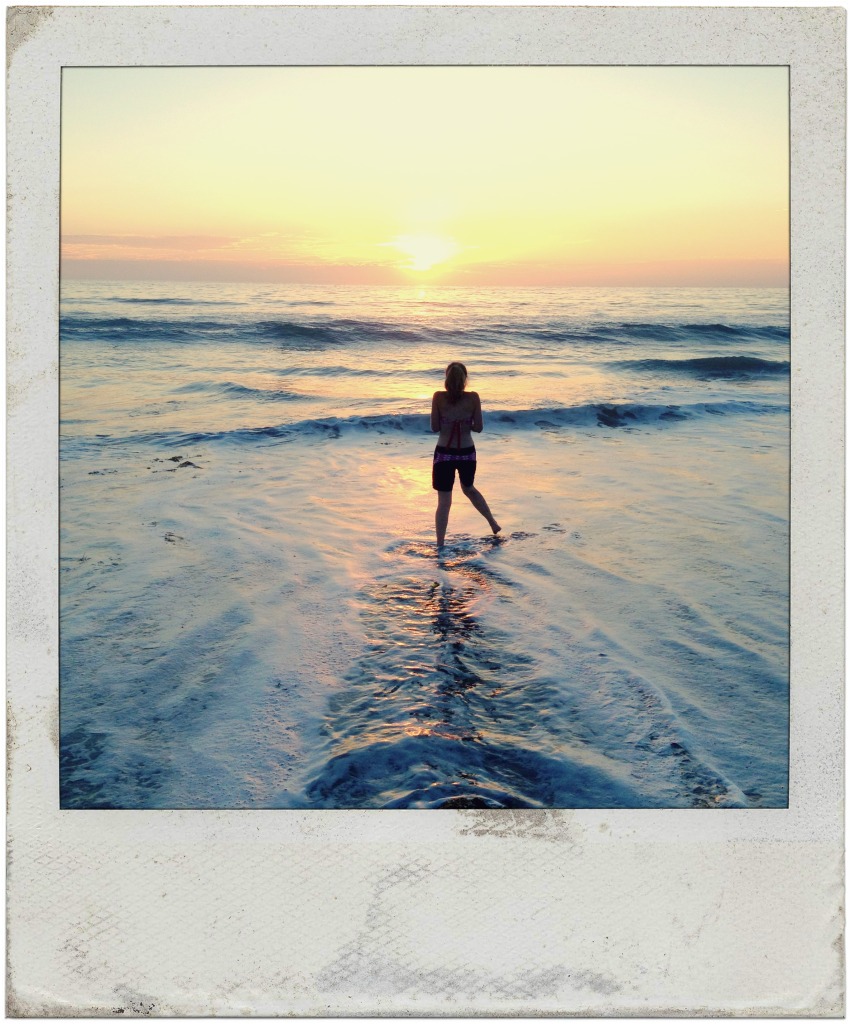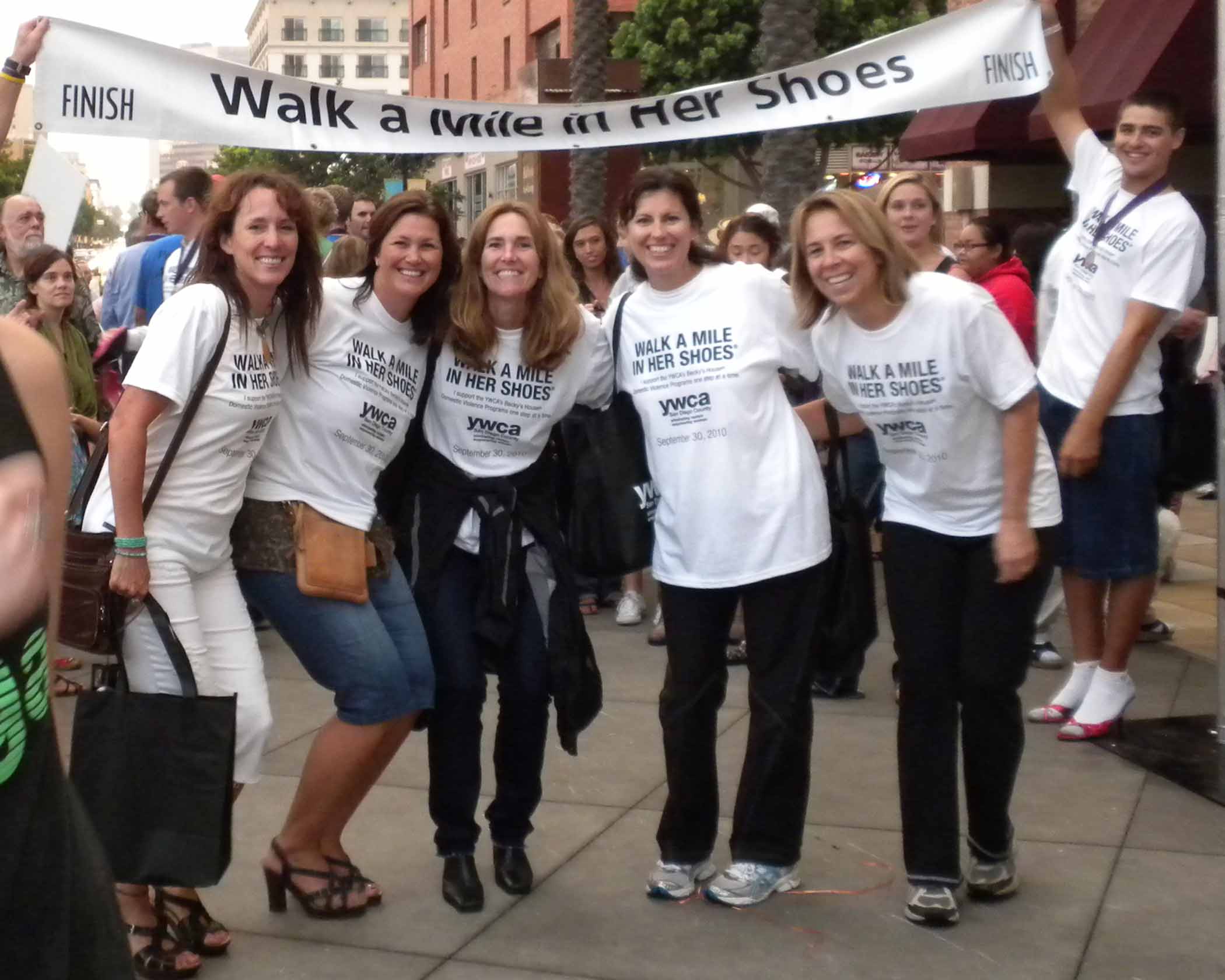Lined up in the garage, as if they are expecting us still, are the dining room chairs of my youth. In all, there are five.
Yet now, as if in a dream, I see eight.
Eight wood chairs—each pushed under an antique table that, if you were not seated in the middle where the leaves met, touched the tops of your legs—three chairs on each side and one at either end.
But today there are five.
I close my eyes as if blocking the image of them here in the garage of my grown-up life will erase the reality that these chairs equal in number those of us in my family of origin who are living.
There never were eight of us all at once.
One of the chairs stood empty. Empty in a way that occupied the space around me and shaped the backdrop of my growing up.
“Pain engraves a deeper memory,” Anne Sexton once said. As deep as an ocean, I think, with eyes still shut, my hands feeling their way across the faux bamboo back of a 19th-century chair.
The tips of my fingers search the woven thrush seat, the feel of which belies the hardness my butt once endured. I can almost feel the imprint of the thrush on the backs of my legs, traces of hours spent belly-up to the table bathed in candlelight and the cacophony of voices, forks on dinner plates, and the occasional ring of the phone.
It seemed we were always at dinner—or at least the punctuated moments I remember best were at that table. Mealtime gatherings that spread out over hours, as opposed to the meals of today often swallowed while driving home from children’s games to this very garage.
As I sit curled now in a quasi-hypermnesic state, the heels of my feet tucked underneath me, forehead on knees, another remembrance breaks free.
And still, there were eight.
Where I sat as a child, I could see the phone through the picture-window-sized opening my mother hired cut from the wall so she could look through from the kitchen to the water view beyond. Her visual thirst for the unfolding of nature’s four seasons was unquenchable.
In those days, kitchen phones were mounted to a wall, their wailing ring unwelcome between nine at night and seven in the morning, the idea of constant contact as remote as the dissolution of the Soviet Union.
And I see her.
My mother with that phone, her back toward the room, head down, absorbing bad news in what had fast become the silence her taking a call during dinner commanded of us.
Once again seated, with eyes fixed on her lap, in a voice just shy of a whisper, she tells us her sister’s husband has died.
As if looking for a culprit, my eyes fixed on the receiver of the hung up phone. The swish of its long chord swinging and re-twisting itself blends with her words—my uncle, confined to a wheelchair, too heavy to lift, choked while my aunt and cousin tried in vain to save him.
There, in the heavyweight that unthinkable news wraps around a room, to the right of my father, is the unoccupied chair.
And I see him.
My dad: jutted jaw, teeth clenched, miniature images of candles reflected in his glasses. The light streaks left, then right, and I watch as the horrible news shifts from his nodding head to his now clenched hand.
And I see myself.
The girl I was, head bowed, tears streaming from her chin, muted by the depth of her despair.
Now, back in the garage, I stare at the remaining lined up chairs.
I never expected to grieve for my mother. But I have. I still do. Her dying exhumed grief I hadn’t known I had—it has been merciless in its ability to dredge long buried emotion to the surface.
There is impatience with those of us who won’t swallow our sorrow, put on a happy face and get back to our lives. Sentiments like, “When the past calls, don’t answer, it has nothing new to say,” abound on social media. Few words would be written if we were intended to lead an unexamined life.
And as if infused in the frigid concrete beneath me come my mother’s words…
“I abhor the notion of closure. There is no such thing.”
At two months, their baby died, a brother I never knew, a child who had he lived, might have meant that the children who followed—my brothers and I—would not have been born. But our births did not save our parents from their grief, nor did our living keep them from their internal wars.
“Pain engraves a deeper memory…”
It is what was missing that my mind homes in on—absent was Robbie’s beginning, never mentioned was his middle; his legacy is and was his tragic end.
I ache for my father—he missed the birth of his first son. He had no memory of his beginning, no sensation of his middle; all he experienced first hand was his tragic end.
“I abhor the notion of closure…there is no such thing…”
I grieve for my mother—the young woman she was all those years ago, alone, laden breasts, an empty bassinet, a daughter to care for, and an apartment to pack. Separated by a continent from a husband at work in the far reaches of Alaska—she was a woman permanently changed. Meanwhile, the world kept waiting for her to get back to living as she had.
And I see myself.
The woman I am—once again on bended knees, fists full of dirt, at the grave.
Today, there are five.




Oh, how I’ve missed reading your words. So much to think about here and so beautifully written, Elin. As always.
xo
Thank you so much Mary… xo
Emotion–a sign that we are alive. Even the hard ones. Lovely piece.
Indeed we do not get out of here without feeling. And really-isn’t that the point-to feel and to connect? Thank you for being here today Carol and for your nice comment.
Oh, Elin. I had to take a moment to breathe after reading that. Powerful, full of emotion, pain and grief. This paragraph truly spoke to me:
“There is impatience with those of us who won’t swallow our sorrow, put on a happy face and get back to our lives. Sentiments like, “When the past calls, don’t answer, it has nothing new to say.” abound on social media. Yet few words would be written if we were intended to lead an unexamined life.”
You are writing about what your go through, but also about what we all do. Okay, what I am. You are a brilliant author and have touched my heart. May the ache in your heart grow small with every year, my friend.
Thanks for stopping by Cathy. That is part of living, yes? We get to experience all the emotions…
Wow, Elin hugs to you! That was a tough read for me because it really hit home. After losing my beloved little brother to a horrific murder I never expected to grieve so hard for anyone, ever again. The grief I am feeling for my father who died unexpectedly this past winter and the death of my best friend three weeks later, sneaks up on me pretty much daily when I least expect it.
It isn’t something you ever get over, it is something you get through it.
Doreen, Hugs to you back, my goodness that is a lot to navigate the waters of. It seems to me that we arrive at a new normal, and as you said, one doesn’t “get over it.” I think there is tremendous value in allowing ourselves to be with our grief–in part that is how one celebrates the myriad ways we were connected to the loved one that died. Thank you for reading my post and for sharing your thoughts.
Oh my…welcome home Elin. How I ‘ve missed your beautiful, moving words and your so deeply inspiring perspective…. May I say it again? Welcome home..and thank you!
Ah Ruth, I miss you my friend. Thank you for your kind words and thank you for the warm welcome too.
Elin, I came to the group while you were away. So happy to know you and to read your words. Thank you for your profound gift of love today.
Kim, Thank you so much for stopping by today and for your sweet comment. I have to share with you that I loved your “Right Now” post and plan to stop by your website again to go back to that and comment. Looking forward to learning more about you!
Beautiful and haunting. My mother is confined to a wheelchair and suffers from dementia. Every now and then she asks about her good silverware. She did love her dining set.
Thank you for stopping by Elaine, sorry to learn about your mother. My grandmother had dementia too, interesting some of the things that come up in their minds.
Your writing is like a waterfall, pulsing with energy and passion and truth. This piece made me pause for a few moments, to process the emotions you sparked in me with your beautiful words. I am so happy that you are writing again.
Thank you so much Helene, what you expressed here means so much to me.
Oh, how I’ve missed you, my friend. Your writing is so beautiful and you always make me think and feel deeply. I can’t even imagine the pain your mom went through and I’m haunted by her words about closure. Thank you for sharing your story so honestly and for making us feel like those memories are our own. xo
Thank you sweet Lois…xo